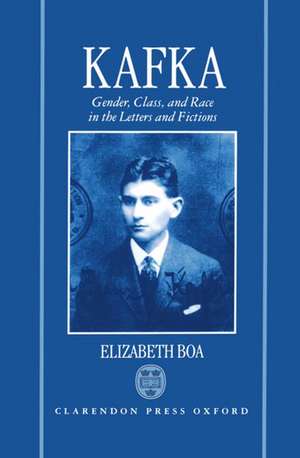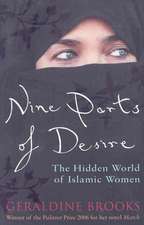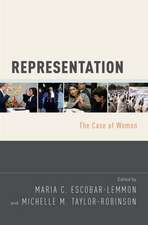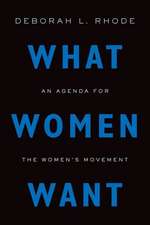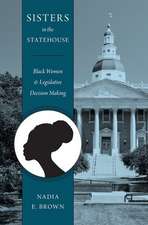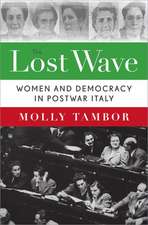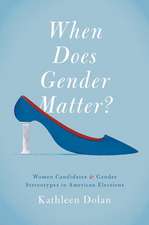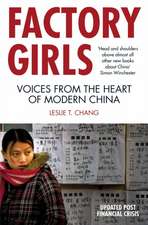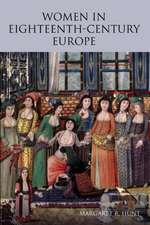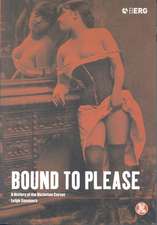Kafka: Gender, Class, and Race in the Letters and Fictions
Autor Elizabeth Boaen Limba Engleză Hardback – 6 iun 1996
Preț: 891.24 lei
Preț vechi: 1353.44 lei
-34% Nou
Puncte Express: 1337
Preț estimativ în valută:
170.64€ • 175.04$ • 143.67£
170.64€ • 175.04$ • 143.67£
Carte tipărită la comandă
Livrare economică 15-21 februarie
Preluare comenzi: 021 569.72.76
Specificații
ISBN-13: 9780198158196
ISBN-10: 019815819X
Pagini: 314
Dimensiuni: 144 x 225 x 23 mm
Greutate: 0.55 kg
Ediția:New.
Editura: Clarendon Press
Colecția Clarendon Press
Locul publicării:Oxford, United Kingdom
ISBN-10: 019815819X
Pagini: 314
Dimensiuni: 144 x 225 x 23 mm
Greutate: 0.55 kg
Ediția:New.
Editura: Clarendon Press
Colecția Clarendon Press
Locul publicării:Oxford, United Kingdom
Recenzii
Boa certainly is very differentiated and admiringly clear in analyzing the intricate wyas in which gender, class, and race from complex conspiracies both in the fiction and in the letters of Franz Kafka.
It is a book that Kafka scholars need to ponder.
a series of wide-ranging often perceptive readings of the letters and fiction ... This study consolidates and adds to recent research on Kafka's relation to his social and ideological circumstances ... The ambiguities in Kafka's construction of women are well brought out, and a detailed and generally persuasive case is made that gender plays a crucial role in the nexus of Kafka's themes and, indeed, in much of literary modernism. For these reasons, and also because critics will find much to take issue with in the wealth of detail with which Boa presents her case, the book is likely to become a focal study in Kafka criticism.
To the author's credit, this implicitly political project is made overt without blunting literary critical sensibilities ... a sensitive treatment of an oft-neglected aspect of his work.
Elizabeth Boa's book is a stimulating and at times controversial account of gender, class and race in Kafka's letters and works of fiction
It is a book that Kafka scholars need to ponder.
a series of wide-ranging often perceptive readings of the letters and fiction ... This study consolidates and adds to recent research on Kafka's relation to his social and ideological circumstances ... The ambiguities in Kafka's construction of women are well brought out, and a detailed and generally persuasive case is made that gender plays a crucial role in the nexus of Kafka's themes and, indeed, in much of literary modernism. For these reasons, and also because critics will find much to take issue with in the wealth of detail with which Boa presents her case, the book is likely to become a focal study in Kafka criticism.
To the author's credit, this implicitly political project is made overt without blunting literary critical sensibilities ... a sensitive treatment of an oft-neglected aspect of his work.
Elizabeth Boa's book is a stimulating and at times controversial account of gender, class and race in Kafka's letters and works of fiction
